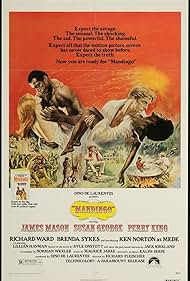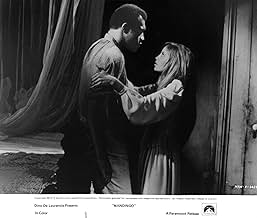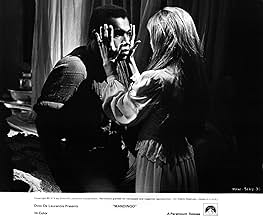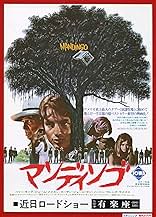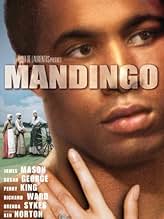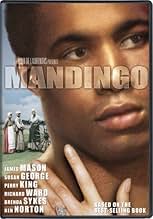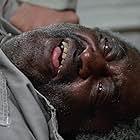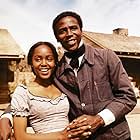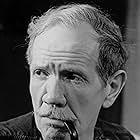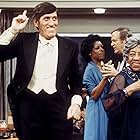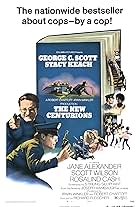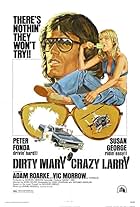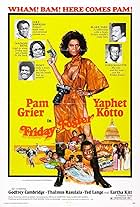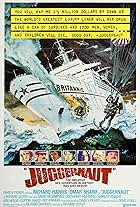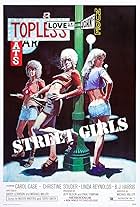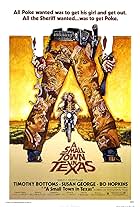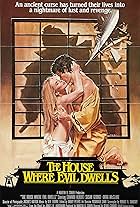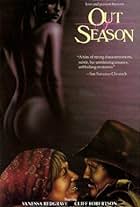IMDb RATING
6.4/10
4.4K
YOUR RATING
An 1840s slaveowner trains one of his slaves to be a bare-knuckle fighter.An 1840s slaveowner trains one of his slaves to be a bare-knuckle fighter.An 1840s slaveowner trains one of his slaves to be a bare-knuckle fighter.
- Awards
- 1 win
Debbi Morgan
- Dite
- (as Debbie Morgan)
- Director
- Writers
- All cast & crew
- Production, box office & more at IMDbPro
Storyline
Did you know
- TriviaJames Mason admitted in interviews that he only made the film to make his alimony payments.
- GoofsDuring Mede's first fight in the city, he and his opponent are wrestling on the grass. When they roll over on the floor, the grass moves like a slipping carpet would, revealing it to be a sheet of artificial green, probably lying on the floor of a sound stage.
- Alternate versionsThe international version of the film (released on PAL region 2 DVD) contains a different cut of the film that runs approx. 5 minutes shorter than the U.S. release but also has many scenes presented in alternate clothed takes. In all 12 scenes were either trimmed or re-edited with alternate shots/angles/takes:
- Scene where slave is bent over and inspected for hemorrhoids is cut.
- Scene where the wench is being prepared for her deflowering is presented in an alternate take where her breasts are not exposed.
- Scene with pregnant wench is shot with alternate angles to obscure nudity. Perry King's full frontal nudity is cut and replaced with a closer shot that reveals he is wearing shorts when he kneels down to pray (It looks like a goof - only a bit of the waistband can be seen at the corner of the frame).
- Alternate takes of the slave being strung up to be beaten are used to obscure nudity, and many shots of him being beat and left bloody are cut.
- A few seconds where Perry King's cousin rips off a wench's dress and bends her over to begin beating her is cut to remove nudity. The beating is left intact.
- The slave market scene is edited to remove the topless wenches on display, and the shot where the German widow sticks her hand into Ken Norton's shorts and "inspects" him is cut short. The second shot with her hand in and then removing it is left intact though.
- An alternate take is used with a prostitute clothed rather than nude at the bawdy house.
- A few seconds of a prostitute rubbing on Perry King's crotch is cut.
- An alternate take is used during the fight at the bawdy house so that a prostitute is seen holding her dress up while she cheers whereas in the original she lets it fall and her breasts be exposed.
- The entire scene between Perry King and Brenda Sykes in which she asks him if he'll let their child go free is presented in alternate clothed takes. In the original film they are both completely nude. Even the camera angles and setups are the same, only with clothes in the international version.
- In the scene where Ken Norton fights a man to death one long shot where the other fighter claws his back is cut. Also cut is when Ken bites down on the other fighter's neck, is pulled off, and then bites into his neck again. All the close-ups are cut.
- The Susan George/Ken Norton love scene is almost entirely missing. Ken Norton's nudity is cut, and then the scene ends in an alternate take when the two go out of frame onto the bed. The original scene went on for much longer and exposed Ken Norton's buttocks and Susan George's breasts. The German theatrical version does not feature any of these alterations and is identical to the U.S. release.
- ConnectionsFeatured in Sooner or Later (1979)
- SoundtracksBorn in This Time
Music by Maurice Jarre
Lyrics by Hitide Harris (as Hi Tide Harris)
Sung by Muddy Waters
[Played during opening title and credits]
Featured review
Mandingo seems to divide it's audience strongly between love and hate and that's not really surprising; the film features some real nasty elements and the way that it's all done with a highly quality 'period drama' sort of style means that it will likely miss it's supposed intended audience - although it seems to have found a good fan base among exploitation fans. The film is liable to shock modern audience for its racial themes and strong racial tone; it didn't bother me all that much to be honest as it suits the film within it's context and helps to enforce its exploitative nature, which in turn makes Mandingo more powerful. The film takes place in the south of America during the 1840's and the main focus of the plot is on slavery. White farm owner Hammond Maxwell one day discovers the fighting talent of one of his black slaves and soon decides to toughen him up for battle with other slaves. He's sympathetic with his slaves and soon becomes affectionate with one of the women, which doesn't sit well with his wife Blanche who, for revenge, forces the top fighter to sleep with her.
Anyone going into this film expecting a serious look at slavery will be either disappointed or annoyed (maybe both), but if you go into it expecting some nasty exploitation, you might find a lot to like. The film gives an unflinching look at a more primitive society and it actually more shocking for its tone and implications than the events that take place in it (although the film does include plenty of racism, torture and rape scenes). The way that the film depicts the black slaves as animals makes for uncomfortable viewing and the way that society was segregated into 'white masters' and 'black slaves' is always enforced on the viewer. The performances sit better with the exploitation side of the film rather than the serious drama side as none of them are particularly brilliant; although the three leads do fit into their roles well. Overall, this is clearly not a film for everyone and I'm not in any way saying that the film's bad reputation is in any way undeserved; but Mandingo is certainly an interesting film and I would say it is at least worth seeing.
Anyone going into this film expecting a serious look at slavery will be either disappointed or annoyed (maybe both), but if you go into it expecting some nasty exploitation, you might find a lot to like. The film gives an unflinching look at a more primitive society and it actually more shocking for its tone and implications than the events that take place in it (although the film does include plenty of racism, torture and rape scenes). The way that the film depicts the black slaves as animals makes for uncomfortable viewing and the way that society was segregated into 'white masters' and 'black slaves' is always enforced on the viewer. The performances sit better with the exploitation side of the film rather than the serious drama side as none of them are particularly brilliant; although the three leads do fit into their roles well. Overall, this is clearly not a film for everyone and I'm not in any way saying that the film's bad reputation is in any way undeserved; but Mandingo is certainly an interesting film and I would say it is at least worth seeing.
Details
- Release date
- Country of origin
- Languages
- Also known as
- Bitmeyen Kavga
- Filming locations
- Production companies
- See more company credits at IMDbPro
Box office
- Gross US & Canada
- $2,433,010
- Runtime2 hours 7 minutes
- Sound mix
- Aspect ratio
- 1.85 : 1
Contribute to this page
Suggest an edit or add missing content

